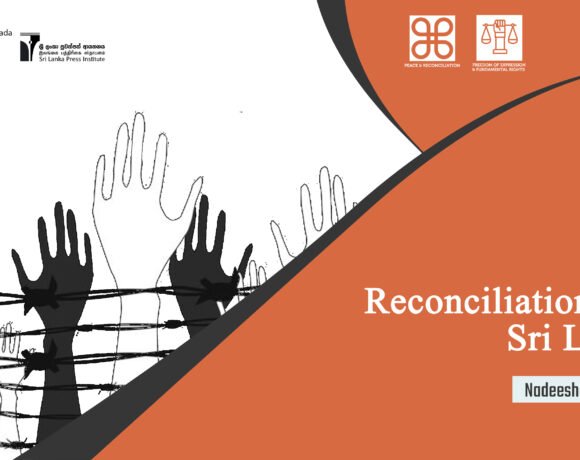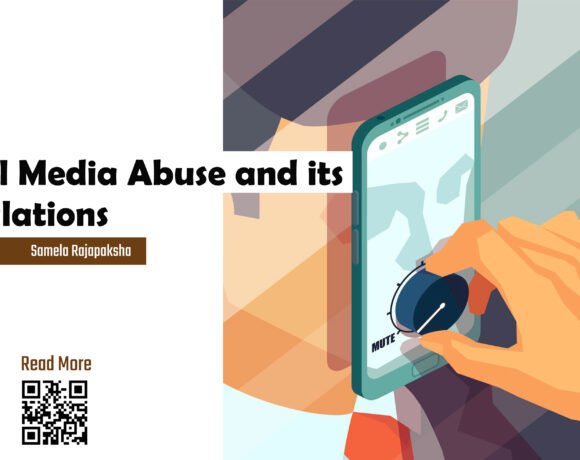Dhanushka Silva
Human rights belong to human beings by virtue of their humanity. According to the Universal Declaration of Human Rights in 1948, human rights are universal, inalienable, indivisible and interdependent. The dawn of the human security paradigm brings to light the idea of human rights and the duty of the state in ensuring the security of individual human beings above all else. However, the human rights approach is extensive and often too all-encompassing, given that it speaks of a universal value that may not be recognized by the inherent plurality within the society of states. Hence, at times the state emerges as the primary violator of human rights rather than its due protector in many contemporary cases. This consequently gives rise to a conflict of interest between the international organizations reserved for protecting human rights and sovereign states. The state should remain the principal protector of human rights; simultaneously highlighting the importance of strengthening a corresponding international actor, the United Nations Human Rights Commission, to check and maintain the human rights commitments that the states adhere to, in order to guarantee human rights to populations across the globe. Accordingly, the key arguments identifying this stance would look into: the idea of human rights and the vitality of protecting individuals; the contradiction between the plurality of the international state, society and the universality of human rights; finally going onto discuss the importance of strengthening the UNHRC to work alongside the state who is the principal actor protecting human rights.
Firstly, the vitality of protecting human rights should be highlighted prior to determining who the better protector is, as the human security paradigm reflects human rights as an entity surpassing state, society and even international systems. As Hough (2008) notes, security is a human condition. Thus, it is important to consider security issues in terms of human perceptions. The human security paradigm highlights that human rights belong to human beings irrespective of their nationality, gender, ethnic origin, religion, language, sexual orientation, skin color and so on. Thus, within the post-cold war world order, the norm of humanitarian intervention sprung up to highlight the importance of protecting human rights in ensuring individual security. Moreover, security threats in the post-cold war world order have now been characterized by internal displacements of masses rather than outright external threats to states. According to a survey conducted by the Human Security Centre (2005), in states varying from Canada to India, the single biggest security issues recognized are crime, terrorism, healthcare and economic insecurity, followed by natural disasters. Moreover, incidents in failing states such as Sudan in 2006, where the national government itself conducted mass atrocities against its own populations, preceded by the human rights violations seen in the Bosnian War (1992-1995), Kosovo (1999) and the Rwandan Genocide (1994) collectively shed light on the importance of protecting human rights “across borders and ruling elites” (Our Global Neighborhood Report on the Commission of Global Governance, 1995). Hence, it is apparent that the dawn of the post-cold war world order highlighted the importance of protecting human rights, declared decades ago, given the atrocities encountered from the beginning. Henceforth, it was established that the post-Westphalian world order required an active mechanism of human rights protection, challenging the primacy of the state as the key protector of human rights due to empirical examples of states destroying human rights within its populations. This serves as an example of why states should not be reserved with the sole responsibility of protecting human rights.









